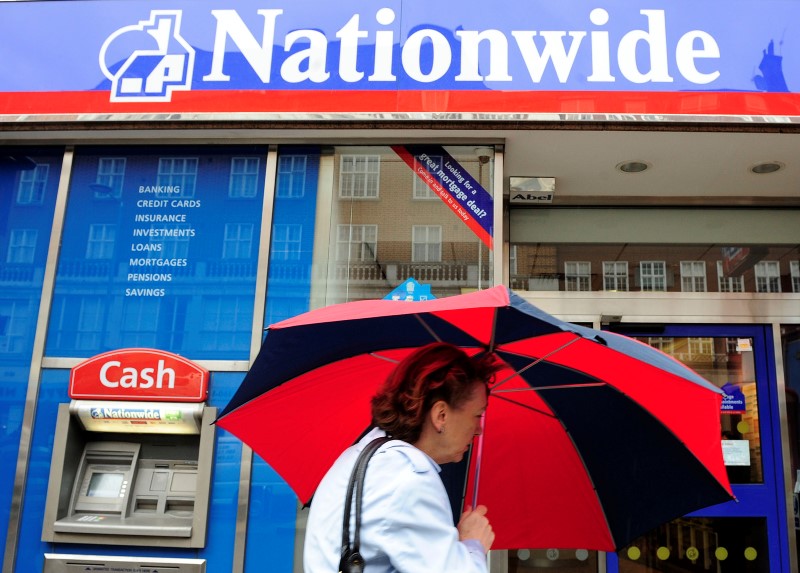Nvidia shares pop as analysts dismiss AI bubble concerns
Investing.com -- Nationwide Building Society (LON:NBS) on Thursday reported a decline in statutory profit before tax to £486 million for the half year to 30 September, down from £568 million a year earlier, after accounting for £409 million in Fairer Share member payments.
British mutual financial institution’s underlying profit before tax increased to £977 million from £959 million, supported by higher income following the acquisition of Virgin Money.
Total underlying income rose to £3.11 billion, compared with £2.13 billion in the prior period. The building society said the increase reflected performance in mortgages and retail deposits as well as the addition of Virgin Money.
Its underlying net interest margin improved to 1.58%, up from 1.50%. Administrative expenses increased to £1.99 billion, up from £1.16 billion, largely due to Virgin Money integration costs and the longer reporting period.
Chief executive Dame Debbie Crosbie in a statement said Nationwide was “number one for growth in mortgages and retail deposits” and added that more people switched current accounts to the society than any other brand.
“All of this, combined with the benefits of our acquisition of Virgin Money, has led to an increase in underlying profit before tax, while delivering £1.2 billion of value to our members,” she said.
Net mortgage lending totaled £4.7 billion, compared with £6.3 billion last year. Total mortgage balances rose to £280.6 billion from £275.9 billion, increasing Nationwide’s mortgage market share to 16.3%.
Gross mortgage lending climbed to £22.2 billion, up from £17.6 billion, reflecting the inclusion of Virgin Money lending. Residential mortgage arrears of more than three months remained low at 0.42%, slightly below 0.43% in March.
Retail deposit balances increased by £5.3 billion to £266 billion, maintaining a 12.2% market share. Business current accounts rose to 292,000, from 278,000 in March.
The society said its retail deposit interest rates averaged 31% higher than the market during the period. The current account switching data cited in the report showed more than one million net current account switchers since 2013.
The impairment charge rose to £146 million, up from £7 million, reflecting Virgin Money’s lending balances and the absence of a £40 million release included in the prior year. Total impairment provisions increased to £1.31 billion.
Consumer lending balances rose to £11.5 billion, with arrears more than three months past due at 0.99%, down from 1.11%. Business and commercial lending decreased slightly to £14.9 billion from £15.1 billion.
Chief financial officer Muir Mathieson said the society delivered “market-leading growth” alongside a “strong financial performance,” adding that the CET1 ratio of 18.4% and leverage ratio of 5.2% remained “robust.”
Nationwide said integration of Virgin Money was ahead of plan. The group agreed to sell Virgin Money’s investments and pensions subsidiary and is preparing for the Part VII transfer of Clydesdale Bank PLC’s assets and liabilities on April 2 2026, covering about 6.6 million customers. System migrations are scheduled to begin after the transfer.
The society noted modest UK economic growth and said housing and deposit trends remained resilient. It said its capital, credit quality and liquidity remained strong, with an average Liquidity Coverage Ratio of 163% for the period.
